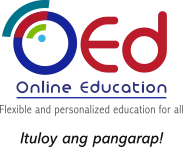
Explore how OEd has transformed education in the Philippines over the past ten years by championing flexible learning. This article journeys through OEd’s impactful evolution and its vision for the future of education.
Key Takeaways:
- OEd introduced flexible online education in the Philippines in 2015, offering students the chance to learn without sacrificing their responsibilities.
- Over the past decade, OEd has become a trusted institution, serving diverse learners such as working professionals, parents, and OFWs.
- With CHED-accredited programs, it has established flexible education as a credible and transformative alternative to traditional learning.
Back in 2015, Online Education (OEd) introduced a new way of learning to the Philippines—flexible online education. At the time, the idea of studying without stepping into a physical classroom seemed unfamiliar.
Yet for students living far from universities, parents unable to afford the costs of city schooling, and professionals who wanted to continue working while studying, OEd offered a game-changer: the chance to learn without leaving their responsibilities behind.
A decade later, OEd has grown into a trusted institution where thousands of Filipinos study at their own pace.
As it marks its 10th anniversary, it’s the perfect time to reflect on how far flexible learning has come and why more students see it as the future of education in the Philippines.
The Philippine Education Landscape: Challenges and Opportunities
Education has always been one of the biggest aspirations for Filipino families, but the path isn’t easy. Common barriers include:
- Geography: Students in rural and far-flung areas often need to relocate or travel long hours to attend school in city centers
- Finances: Tuition, daily transportation, and living costs weigh heavily on families
- Responsibilities: Many Filipinos work while studying, care for younger siblings, or juggle family duties
- Interruptions: Some students stop school due to migration abroad, early employment, or personal reasons.
These realities leave many Filipinos asking: “Is there another way to finish my education without sacrificing everything else?”
Flexible education emerged as the answer. Removing physical and time-related barriers made learning more inclusive, proving that a diploma doesn’t have to come at the expense of work, family, or personal growth.

The Evolution of Flexible Learning
OEd was among the first schools in the country to embrace digital education, launching its online programs in 2015. Unlike traditional distance learning with printed modules, OEd has built a comprehensive digital ecosystem that covers enrollment, classes, exams, and student services.
Over the years, it has served learners from all walks of life, including:
- Senior high school graduates and parents looking for affordable yet credible college programs
- Working professionals who want to continue learning without sacrificing their careers
- Mothers and fathers who balance raising families while studying
- Overseas Filipino Workers (OFWs) who once thought finishing a degree abroad was impossible
By addressing these needs, OEd has shown that the benefits of flexible learning extend far beyond convenience—it’s about opening doors to opportunities that would otherwise remain closed.
Building Credibility Through Quality Education
Its CHED-accredited programs also reassured families that flexible learning could still meet national standards. This was a turning point: online education was no longer viewed as a “shortcut,” but as a legitimate alternative.
Today, OEd offers programs in senior high school, undergraduate degrees, and postgraduate programs. This shift was driven by one central philosophy: education must adapt to the learner.
Transforming Lives Through Flexible Learning
The heart of OEd’s journey lies in the stories of its learners: nurses and teachers who earned promotions, parents balancing family and studies, and OFWs obtaining diplomas from afar.
Collectively, their stories prove that flexible online education is about creating real opportunities for Filipinos to turn challenges into milestones and dreams into reality.
A New Era of Flexible Education
Marking its 10th anniversary this year, OEd has embraced a refreshed identity and guiding message: “Flexible Education That Adapts to You.”
This is a reaffirmation of OEd’s mission to support every learner’s unique journey. As OEd’s leaders put it: “Over the past decade, OEd has empowered thousands of Filipinos to realize their dreams, regardless of their circumstances. As we celebrate this milestone, we reaffirm our mission to make education not just accessible, but truly transformative.”

What’s Next for OEd?
The first decade proved that flexible education works. The next will build on that success. OEd is preparing to:
- Offer more programs that match the skills needed in today’s workplaces.
- Strengthen partnerships with industries so students graduate career-ready.
- Upgrade digital platforms for smoother, more engaging learning experiences.
- Continue creating opportunities for Filipinos who want to study, no matter their circumstances.
OEd is here to grow with its students and help shape a future where flexible learning in the Philippines becomes the standard, not just an alternative.
Start Your Educational Journey with OEd
For the past 10 years, OEd has been a partner in helping Filipino learners chase their dreams. With flexible learning options in the Philippines, learners can now choose a path that suits their lives and their goals.
As it looks ahead, OEd promises to stay true to its mission: to remain the home of flexible and personalized learning for all Filipinos.
Flexible learning has already changed the game. It’s time to let it change your future, too. Enroll in OEd today.
Frequently Asked Questions About OEd
Does CHED recognize OEd?
Yes. OEd’s programs are CHED-accredited, so learners can be confident that their hard work is officially recognized.
Can someone working full-time still study with OEd?
Yes. The flexibility of online programs allows students to learn after work, on weekends, or whenever they’re free.
Is flexible education just for college students?
No, OEd also offers senior high school and postgraduate programs.
Can OFWs enroll in OEd programs?
Yes. Many OFWs have completed their studies with OEd while working abroad, proving that distance is no longer a barrier to education.
What do I need to get started with OEd?
All you need is a reliable internet connection and a device, such as a computer, laptop, or smartphone. From enrollment to graduation, everything is done online.
